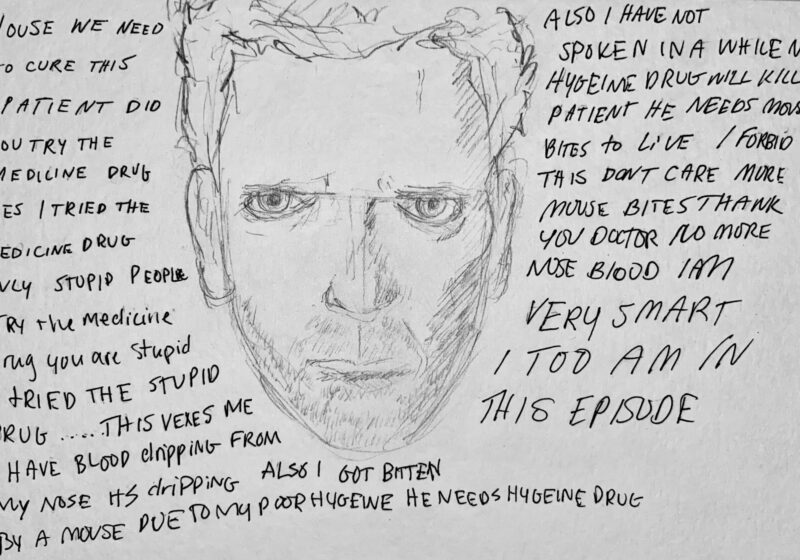 Psi Upsilon was one of the oldest fraternities at UR. As of May 2010, however, it ceased to be recognized by the University. The fraternity was found to be violating UR’s anti-hazing policies and was issued a three-year ban, or disaffiliation, from campus. Following fraternity members’ appeal to its sanctions, Dean of the College Richard Feldman has decided to reduce the sentence duration to two years.
Psi Upsilon was one of the oldest fraternities at UR. As of May 2010, however, it ceased to be recognized by the University. The fraternity was found to be violating UR’s anti-hazing policies and was issued a three-year ban, or disaffiliation, from campus. Following fraternity members’ appeal to its sanctions, Dean of the College Richard Feldman has decided to reduce the sentence duration to two years.
“I made the change because I concluded that the revised sanction adequately took into account the seriousness of the behavior for which they were found responsible, but also provided a better opportunity for the fraternity to make a successful return to campus more quickly,” Feldman said.
Three years from now, in 2012-13, Psi U will be allotted censured status. Only then can the fraternity begin to return to campus, although it will continue to function under heavy administrative oversight. In the meantime, Psi U’s house has been reconfigured for other uses, namely to relieve this year’s strained housing situation. Co-ed undergraduates now reside in the newly renovated and largest building on the Fraternity Quad.
An administrative hearing held in the spring found Psi U guilty of violating campus judicial codes, such as underage drinking and the use of marijuana. However, the most serious allegation against Psi U was hazing new members. Dean of Students Matthew Burns said there was evidence of multiple instances
of hazing. What constitutes “hazing” is defined in full on the Fraternity and Sorority Affairs’ website, and the term refers to the act as “any action taken or situation created…which has the potential to produce mental or physical discomfort, embarrassment, harassment or ridicule.” There are different degrees of hazing, but the most violent include pressure to use alcohol and participate in illegal activity.
“There wasn’t any disagreement that some of the stuff they were involved in crossed the line into hazing,” Burns said.
“We knew what we were dealing with,” Former Psi U President and junior Eli Goldfarb said about chapter leaders’ reactions to the sanctions. “We were not shocked. They gave us a general idea of what to expect and they were consistent.”
While there were no serious injuries in Psi U’s case, similar hazing situations on other campuses have led to serious consequences, even death.
“Some of the hazing violations were examples of situations in other places and other times students had been harmed,” Burns said.
According to Burns, news about the hazing first reached administrative ears in mid-April, prompting an investigation into the fraternity and its new members.
“It came to our attention almost simultaneously from a couple different sources and to my knowledge they were all fraternity-related,” Burns said. “I know there’s a rumor that someone on the inside told on them but there’s more to it than that.”
Within a month of the investigation’s introduction, the administration released its sanctions — a process Burns admitted could not have been nearly as swift had the fraternity and its new members been uncooperative.
“Certainly all the corroboration came from the members being honest during the investigation,” Burns said. “There was certain information we got that caused us to raise our eyebrows and when we looked into it we got the information we needed from members.”
To obtain this information, the administration and UR Security conducted individual interviews with students. Goldfarb said he and others took issue with how parts of the investigation were handled.
“We weren’t especially happy with how it was conducted,” he said. “We thought it could have been more diplomatic. There were certain rules that have to be followed by Security and we felt some things went beyond them. I think they were a little too aggressive.”
Several members of the fraternity faced individual charges from the University, but these details are not publicly disclosed. No student was suspended or expelled in this case through UR’s discipline system, according to Burns. UR’s disciplinary process emphasizes discretion and privacy and all parties are careful to protect the identities of those involved.
“The more that one talks about the specific actions of those charges, the closer you get to people who were victimized by that action and the closer you get to unintentionally disclosing the identities,” Burns said.
Over the summer, undergraduates received the option to move into the Psi U house. Residential Life renovated the rooms, installing new furniture and carpet.
One sign marking a new era in the house is that men and women are now split by floor. A second is that a Disney Store carpet now lines the common room’s hardwood floors.
Residential Life will have use of the building for several years, assuming Psi U has met the requirements to return to the house.
The decision to open up the rooms has helped to relieve an overcrowded housing situation. Residential Life reported operations at over 100 percent capacity, a situation that has especially hurt transfer students and sophomores. Twenty-six students are assigned to Psi U, which has freed housing for students on the waiting list.
Sophomore Leah Conant opted to live in Psi U and is quite pleased with her new situation, which includes a sizeable single and full-size bed.
“I have no complaints at all. I feel safe and I love the location. I have a great view from my room and I would definitely recommend it for anyone to live there next year,” she said.
Meanwhile, the Psi U house’s neighbor, Theta Chi Fraternity was also renovated this summer — at the fraternity’s cost — to prepare for members’ return.
In 2007, Theta Chi was placed on censured status for repeated drug and alcohol violations. Since then the chapter has been permitted some activity, such as recruitment, given administrative approval.
The Theta Chi house remained vacant during this period, although administrators had considered the possibility to house students. The idea never developed due to the number of expensive reparations, among other reasons.
“It may be true that our experience with the Theta Chi house better prepared us for the Psi Upsilon situation,” Burns said.
For instance, the name of the Psi U house will not be changed. For now, however, the name of the house will be the disaffiliated fraternity’s most visable — and only — presence on the River Campus.
Leber is a member of the class of 2011.





